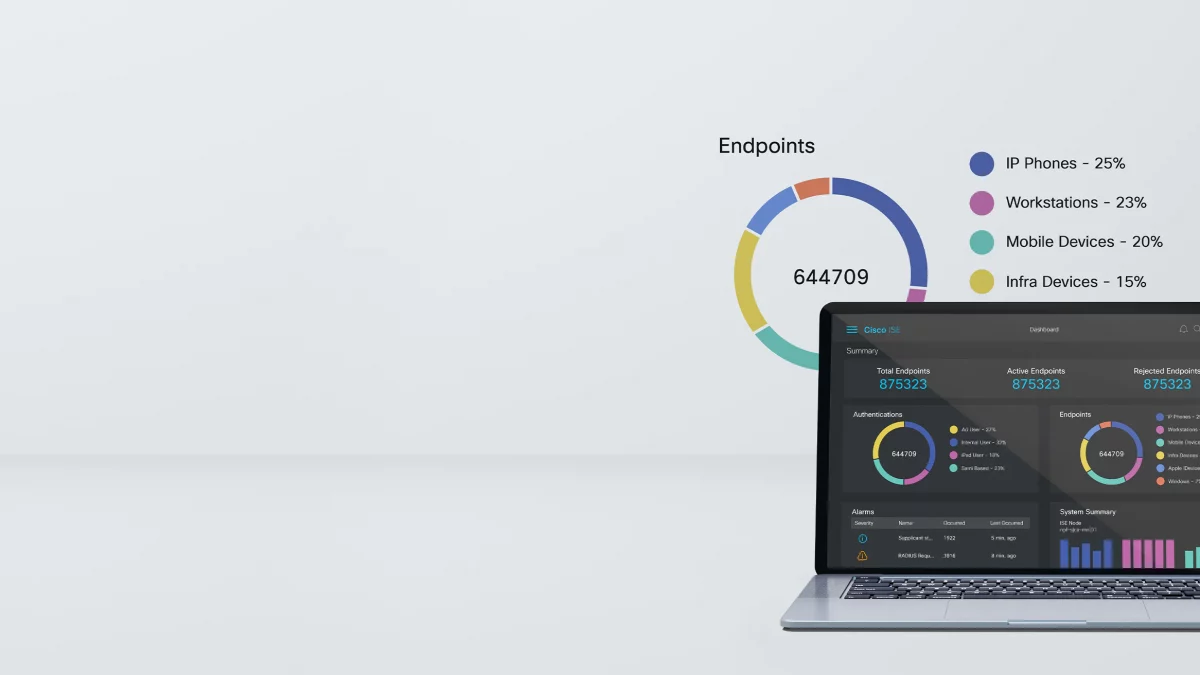Cisco has released security updates for vulnerabilities affecting Cisco Identity Services Engine (ISE). A remote attacker could exploit some of these vulnerabilities to bypass authorization and access system files.
CISA encourages users and administrators to review the following advisories and apply the necessary updates:
- Cisco Identity Services Engine Insufficient Access Control Vulnerability
- Cisco Identity Services Engine Cross-Site Scripting Vulnerability
Cisco Identity Services Engine Insufficient Access Control Vulnerability
A vulnerability in the web-based management interface of Cisco Identity Services Engine (ISE) could allow an authenticated, remote attacker to bypass authorization and access system files.
This vulnerability is due to improper access control in the web-based management interface of an affected device. An attacker could exploit this vulnerability by sending a crafted HTTP request to the affected device. A successful exploit could allow the attacker to list, download, and delete certain files that they should not have access to.
Cisco plans to release software updates that address this vulnerability. There are no workarounds that address this vulnerability.
Affected Products
- Vulnerable ProductsThis vulnerability affects Cisco ISE.For information about which Cisco software releases are vulnerable, see the Fixed Software section of this advisory.Products Confirmed Not VulnerableOnly products listed in the Vulnerable Products section of this advisory are known to be affected by this vulnerability.
Fixed Software
- Cisco will release free software updates that address the vulnerability described in this advisory. Customers with service contracts that entitle them to regular software updates should obtain security fixes through their usual update channels.Customers may only install and expect support for software versions and feature sets for which they have purchased a license. By installing, downloading, accessing, or otherwise using such software upgrades, customers agree to follow the terms of the Cisco software license:
https://www.cisco.com/c/en/us/products/end-user-license-agreement.htmlAdditionally, customers may only download software for which they have a valid license, procured from Cisco directly, or through a Cisco authorized reseller or partner. In most cases this will be a maintenance upgrade to software that was previously purchased. Free security software updates do not entitle customers to a new software license, additional software feature sets, or major revision upgrades.The Cisco Support and Downloads page on Cisco.com provides information about licensing and downloads. This page can also display customer device support coverage for customers who use the My Devices tool.
- When considering software upgrades, customers are advised to regularly consult the advisories for Cisco products, which are available from the Cisco Security Advisories page, to determine exposure and a complete upgrade solution.In all cases, customers should ensure that the devices to be upgraded contain sufficient memory and confirm that current hardware and software configurations will continue to be supported properly by the new release. If the information is not clear, customers are advised to contact the Cisco Technical Assistance Center (TAC) or their contracted maintenance providers.Customers Without Service ContractsCustomers who purchase directly from Cisco but do not hold a Cisco service contract and customers who make purchases through third-party vendors but are unsuccessful in obtaining fixed software through their point of sale should obtain upgrades by contacting the Cisco TAC: https://www.cisco.com/c/en/us/support/web/tsd-cisco-worldwide-contacts.htmlCustomers should have the product serial number available and be prepared to provide the URL of this advisory as evidence of entitlement to a free upgrade.Fixed ReleasesIn the following table(s), the left column lists Cisco software releases. The right column indicates whether a release is affected by the vulnerability that is described in this advisory and the first release that includes the fix for this vulnerability. Customers are advised to upgrade to an appropriate fixed software release as indicated in this section.Cisco ISE ReleaseFirst Fixed Release3.0 and earlierNot vulnerable3.11Release no. TBD (future release)3.21Release no. TBD (future release)1. Hot patches could be available by request for certain releases and patch levels. Contact Cisco TAC to make the request.Note: Cisco ISE releases 3.1P4 and 3.2 reduce the impact of this vulnerability by preventing files from being downloaded. The files can still be listed and deleted. This fix is tracked in CSCwb75965.Note: Cisco ISE releases 3.1P4 and 3.2P1 further reduce the impact of this vulnerability by limiting the accessible files to the localdisk folder only. For more information about the localdisk folder, see the ISE 3.1 Release Notes. This fix is tracked in CSCwc62413.For instructions on upgrading a device, see the Upgrade Guides located on the Cisco Identity Service Engine support page.The Cisco Product Security Incident Response Team (PSIRT) validates only the affected and fixed release information that is documented in this advisory.
Exploitation and Public Announcements
- The Cisco PSIRT is aware that proof-of-concept exploit code for the vulnerability that is described in this advisory will become available after software fixes are released. Public reports of the vulnerability, including a description and classification without specific technical details, may become available after this advisory is published.The Cisco PSIRT is not aware of any malicious use of the vulnerability that is described in this advisory.
URL
Source:
https://tools.cisco.com/security/center/content/CiscoSecurityAdvisory/cisco-sa-ise-access-contol-EeufSUCx


Stay connected